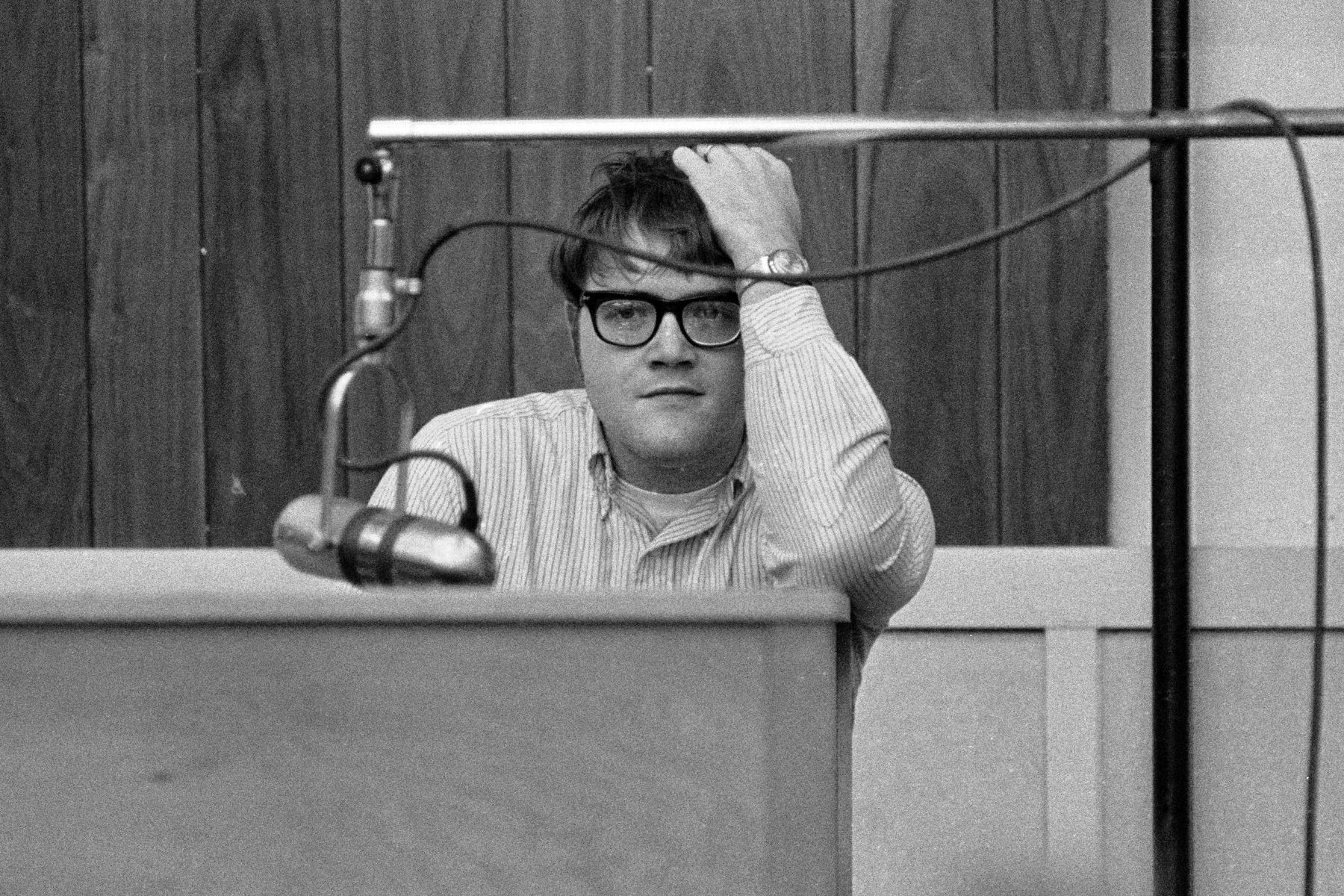
Roger Hawkins, Muscle Shoals Drummer on Aretha Franklin Classics, Dead at 75
Roger Hawkins, the drummer in the legendary Swampers and Muscle Shoals Rhythm Section who played on hits like Aretha Franklin’s “Respect,” Wilson Pickett’s “Mustang Sally,” and Percy Sledge’s “When a Man Loves a Woman,” has died at the age of 75.
The Muscle Shoals Music Foundation announced Hawkins’ death Thursday. AL.com reports that Hawkins died following an extended illness; the drummer suffered from numerous illnesses later in life, including chronic obstructive pulmonary disease.
“Our hearts are breaking today as the heartbeat of ‘The Swampers’ drummer Roger Hawkins passed away this afternoon at his home in Sheffield,” the foundation wrote.
“[Producer] Jerry Wexler called Roger, ‘the greatest drummer of all time.’ Roger was a kind and generous man who loved family, friends and his fellow musicians… We will think of you as we listen to your many hits including, ‘Respect Yourself,’ ‘Mustang Sally,’ ‘When a Man Loves A Woman,’ ‘Chain of Fools,’ ‘I’ll Take You There’ and so many more.”
Hawkins was the founding drummer in the Swampers (the original name of the Muscle Shoals Rhythm Section) when FAME Studios owner Rick Hall enlisted local Alabama musicians — Hawkins, guitarist Jimmy Johnson, bassist David Hood, and keyboardist Barry Beckett — to serve as session musicians at his Muscle Shoals, Alabama, studio.
In the mid-Sixties, Atlantic Records’ Jerry Wexler brought artists like Wilson Pickett and Aretha Franklin to record at FAME, resulting in Hawkins and the Muscle Shoals Rhythm Section performing on some of the most iconic and biggest hits of the era: Wilson Pickett’s “Land of 1000 Dances,” “Mustang Sally,” and his cover of the Beatles’ “Hey Jude”; Franklin’s “Respect” and “I Never Loved a Man (The Way I Love You),” “Chain of Fools” and “Think.”
“I was a better listener than I was a player and I think the other guys were too,” Hawkins told AL.com in 2019. “Because they loved music and they had catalogs of music in their brains, just like I had a catalog of stuff where I could pull out certain things and make it work with newer stuff.”
The Muscle Shoals musicians left FAME in 1969 to open their own studio at 3614 Jackson Highway — an address immortalized in the title of the Cher album recorded there — in Sheffield, Alabama. Now the Muscle Shoals Rhythm Section, the musicians continued to feature on hits like the Staple Singers’ “I’ll Take You There,” Paul Simon’s “Kodachrome” and Bob Seger’s “Old Time Rock and Roll” and “Mainstreet.” Willie Nelson recorded his 1974 album Phases and Stages with the Muscle Shoals Rhythm Section, while artists like the Rolling Stones, Rod Stewart, Sam & Dave and Joe Cocker all made the sojourn to Alabama to play with the group.
Hawkins ranked Number 31 on Rolling Stone’s list of the 100 Greatest Drummers of All Time. “Jerry Wexler, the producer who coined the very term ‘rhythm & blues,’ called Roger Hawkins ‘the greatest drummer in the world.’ Like all the Swampers, as he and his mates in the Muscle Shoals Rhythm Section were affectionately known, Hawkins excelled at adapting his personal style to the needs of a session,” Rolling Stone wrote of the drummer.
“Wilson Pickett slapped out the beat he wanted for ‘Land of 1000 Dances’ on his leg and Hawkins took it from there; Paul Simon sought a particular lope for ‘Kodachrome’ and the drummer captured it by tapping on a tape box. The intricate cymbal pattern Hawkins builds up to on Aretha’s ‘Chain of Fools,’ the wry funk patterns he runs under the Staple Singers’ ‘I’ll Take You There,’ the subtle drama he lays out on Percy Sledge’s ‘When a Man Loves a Woman’ — it all makes it hard to argue with Wexler.”
Along with his Muscle Shoals bandmates, Hawkins was inducted into the Alabama Music Hall of Fame in 1995 and the Musicians Hall of Fame in 2008. Hawkins and the surviving members were also featured in the 2019 documentary Muscle Shoals about the musicians and their legacy.
“Roger was a hero of mine and we’ll all miss him. The music we love wouldn’t sound the same if he’d never shared his gift with all of us,” Jason Isbell tweeted.




